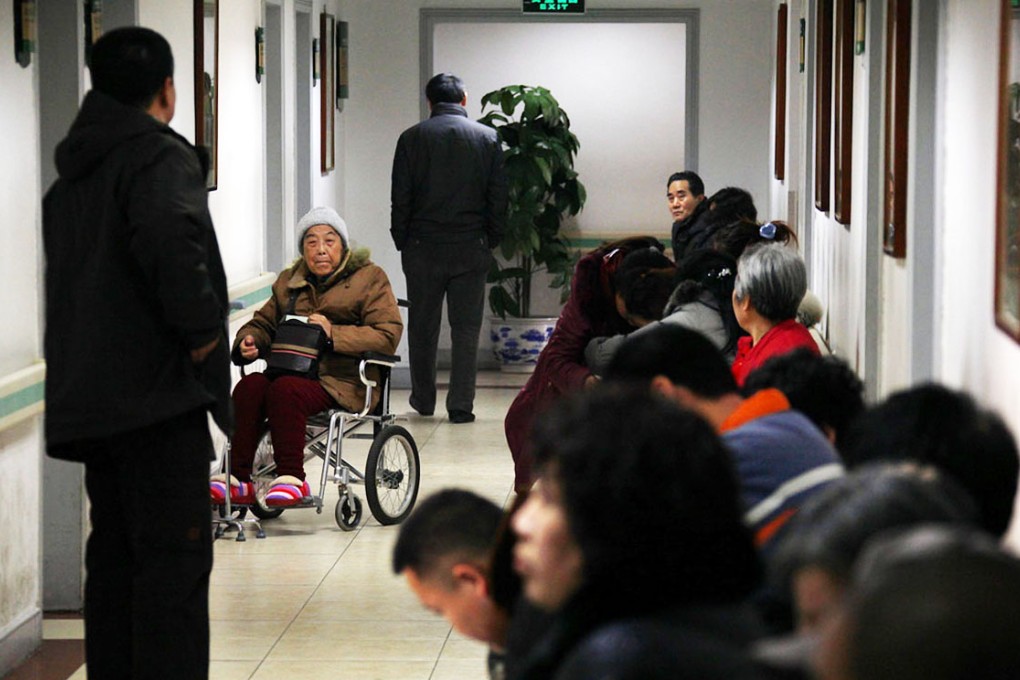Health authority orders China's public hospitals to stop expanding
Health authority blames growth for rising bills, but hospitals say they chase business to survive

The state health authority has ordered mainland public hospitals to halt their rapid expansion, blaming it for rising medical bills.

"[The expansion] has led to an irrational increase in medical expenses, squeezed the growth of grass-roots and private hospitals and also hampered those big hospitals from improving their services and management."
Some 10 public hospitals have 4,000 or more beds, including the First Affiliated Hospital of Zhengzhou University with 10,000 beds, Huaxi Hospital in Chengdu with 4,300 beds and Tongji Hospital in Wuhan with 4,000.
Patients at mainland public hospitals often complain about long lines and impatient doctors who are under pressure from treating up to 200 patients a day, a hospital source said.
The circular said regional health bureaus should not allow public hospitals to add more beds, build luxury wards or borrow for expansion.
Chen Shaoxian, a public health professor at Guangzhou's Sun Yat-sen University, said the motivation behind expansion was survival in the marketplace because more beds and cutting-edge medical devices meant they could attract more patients.